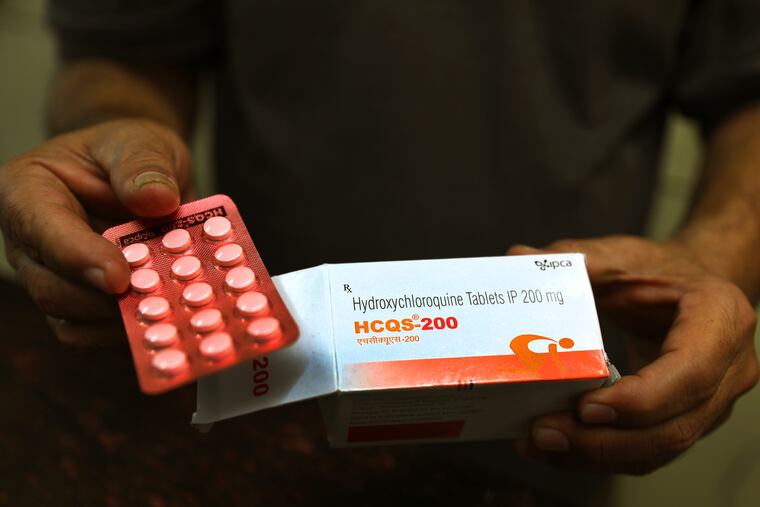FDA warns of risks with using Trump-promoted malaria drug for coronavirus treatment
Regulators warn of reports of serious side effects and death among patients taking hydroxychloroquine and the related drug chloroquine.

WASHINGTON — The U.S. Food and Drug Administration is warning doctors against prescribing a malaria drug widely touted by President Donald Trump for treating the new coronavirus outside of hospitals or research settings.
In an alert Friday, regulators flagged reports of serious side effects and death among patients taking hydroxychloroquine and the related drug chloroquine. The drugs, also prescribed for lupus, can cause a number of side effects, including heart rhythm problems, severely low blood pressure and muscle or nerve damage.
In one such report, doctors at a New York hospital said that heart rhythm abnormalities developed in most of the 84 coronavirus patients treated with hydroxychloroquine and the antibiotic azithromycin, a combo Trump has promoted.
Last month, the FDA authorized emergency use of the malaria drugs for hospitalized patients with COVID-19 who aren’t enrolled in ongoing clinical trials. But regulators said they are investigating life-threatening side effects reported with the drugs to poison control centers and other health authorities.
Calls to U.S. poison control centers involving the malaria drugs have recently jumped 50%, from 52 calls in March 2019 to 79 last month, according to Dr. Christopher Hoyte of the Rocky Mountain Poison Center in Denver, Colorado.
The problems reported include irregular heart rhythms, seizures, nausea and vomiting, Hoyte said.
Trump has repeatedly touted hydroxychloroquine during his regular coronavirus briefings, calling it a “game changer” and suggesting its skeptics would be proved wrong. He has offered patient testimonials that the drug is a lifesaver.
“It is important that health care providers are aware of the risks of serious and potentially life-threatening heart rhythm problems that can occur with these drugs,” the FDA said in a statement.